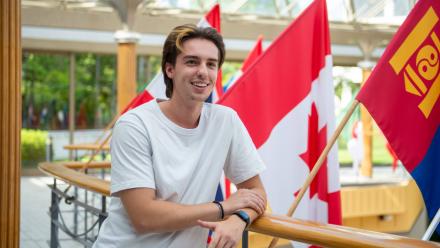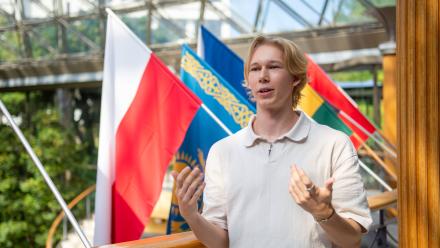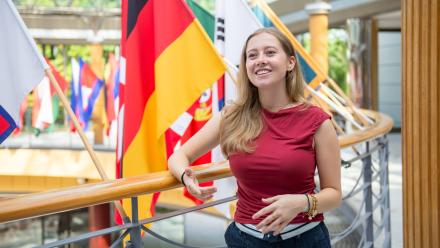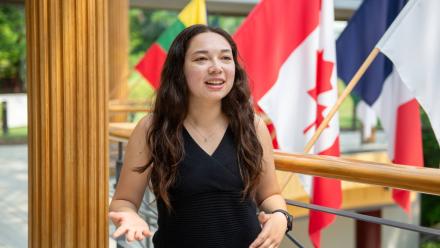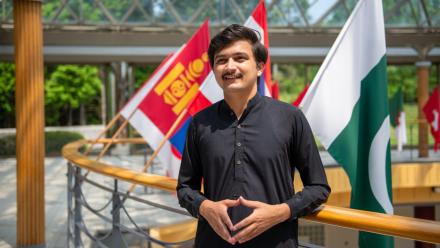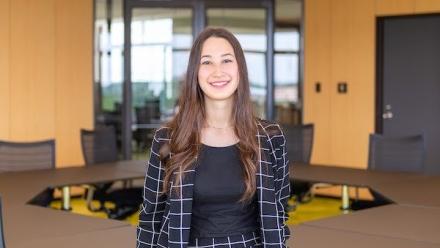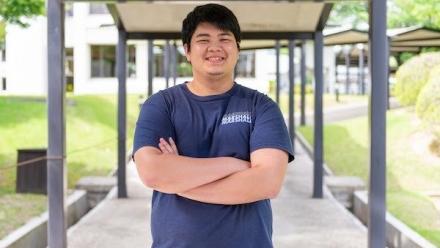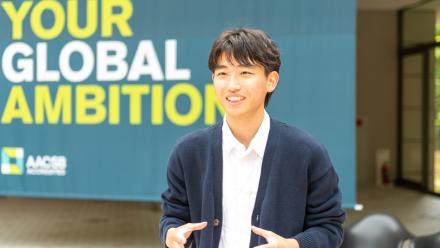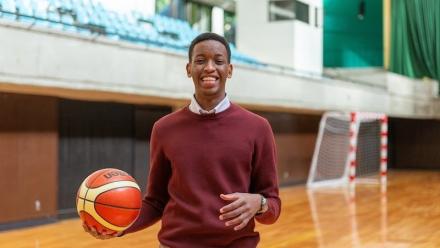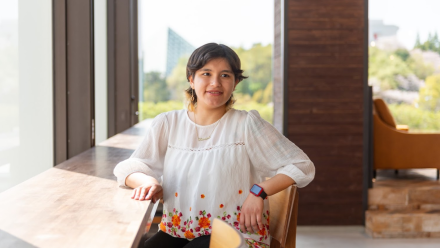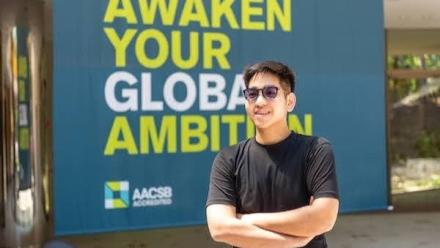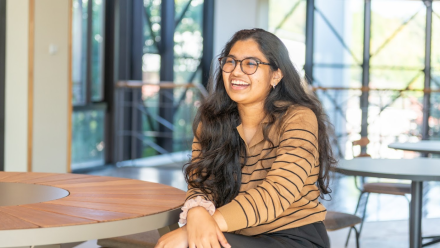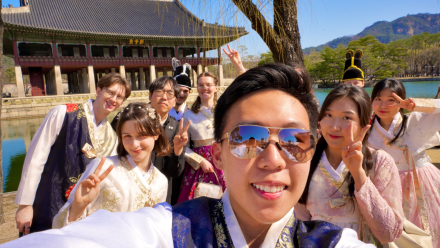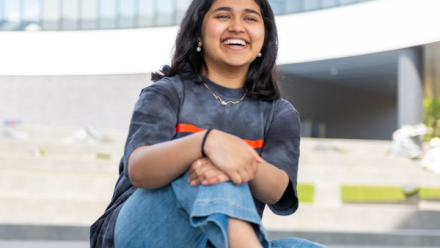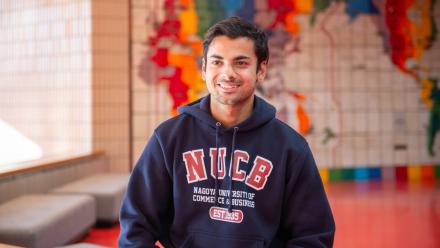Ilse, an exchange student from the University of Groningen, recently took some time to sit down with us and share insights into her experiences here in Japan and her academic journey at NUCB. In this interview, we had the chance to delve into the specifics of Ilse's daily life, her cultural encounters, and the unique aspects of her studies at NUCB.
Can you discuss how the academic environment at NUCB differs from your previous educational experiences?
NUCB's approach to the case method provides a unique academic setting that differs from my previous educational experiences. Classes at NUCB revolve around interactive discussions and in-depth case studies. In contrast, my experience at my university in Groningen, The Netherlands, primarily involves lectures and class exercises. I've noticed that the discussions at NUCB significantly aid my learning, allowing me to benefit from classmates and the professor's diverse perspectives on various topics and cases.
What are some of the local Japanese customs or traditions that you've found most interesting or unique?
I find the Japanese customs and traditions related to greetings and social interactions particularly fascinating and unique. While in Europe, it's normal to shake hands or exchange hugs when meeting someone, Japan stands out with showing respect through bowing instead. Additionally, another unique manner that I've noticed is the Japanese custom of removing shoes when entering homes or even restaurants. This differs from the norms that we are used to in Europe.
What has been your favorite Japanese food or culinary experience since arriving in Japan?
The Japanese culinary highlights that I enjoy the most are the conveyor belt sushi and yakiniku. These food experiences are particularly enjoyable to share with friends, and the food is truly delicious.
Can you describe a typical day in your life as a student at NUCB?
On days with a full schedule at NUCB, my routine kicks off at 7 am to ensure I can leave the Meito dorm by 8 am. The journey from Meito to NUCB usually takes about an hour, ensuring a timely arrival for the 9:20 am classes. The morning session spans from 9:20 to 12:50, and after the morning class, I join classmates for lunch in the cafeteria. The afternoon class commences at 13:50 and concludes at 17:20. Following the 17:20 session, I commute back to Meito. Evenings are diverse; sometimes, I dine out with friends after school, and on other occasions, I prepare my own meal in the dorm. Evenings are typically dedicated to homework or a workout at the gym.
How have your interactions with local Japanese students and other international students enriched your experience?
Interacting with both local Japanese students and fellow international students has significantly enriched my overall experience at NUCB. Engaging with local students has deepened my understanding of Japanese culture, customs, and perspectives. On the other hand, connecting with international students has added a global dimension to my experience. Exchanging ideas with students from different parts of the world has exposed me to diverse perspectives. Sharing experiences with students of varied cultures and viewpoints makes this entire journey even more fulfilling.
How do you plan to apply the knowledge and skills you've gained at NUCB in your future career or studies?
In the future, I plan to apply the analytical and problem-solving skills I've acquired through case studies and interactive class discussions at NUCB. The case method encourages deep thinking about various topics, pushing me to develop these essential skills. Additionally, the global perspective and cultural awareness gained through interactions with international students have provided me with a broader understanding, which I believe will be a valuable asset in my future career.
What advice would you give to someone from your home country who is considering studying abroad in Japan?
To someone from my home country considering studying abroad in Japan, my advice would be to embrace the unique cultural experience that Japan offers. A tip would be for this to try to use some basic Japanese to make it a bit easier to communicate in Japan. In addition, immerse yourself in the Japanese culture by participating in cultural events and engaging with both Japanese and fellow international students. Lastly, enjoy your time to the fullest while being in Japan. The experience swiftly passes, so my foremost advice is to make the most out of this opportunity.

 Download
Download
 Infosession
Infosession
 Application
Application
 Open Campus
Open Campus
